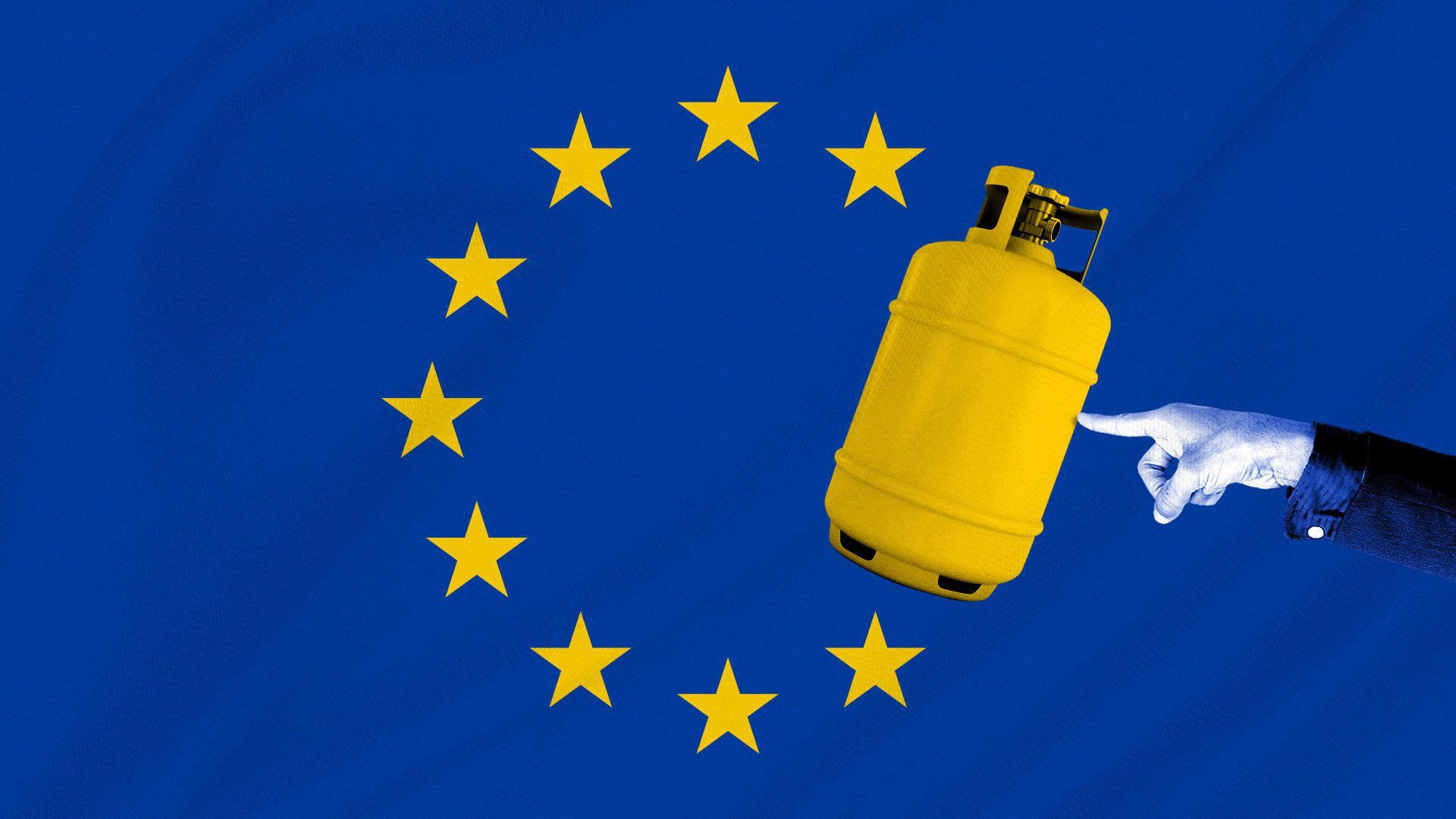Europe pushed to finance natural gas, nuclear as part of Green Deal
Add Axios as your preferred source to
see more of our stories on Google.

Illustration: Eniola Odetunde/Axios
Europe is facing pressure to include natural gas and nuclear power as part of its plan for sustainable finance.
Why it matters: Europe represents the progressive edge of the world’s response to climate change and controls a lot of finance in developing nations, so what it does on these controversial energy sources could set the bar globally.
Driving the news: The European Commission is poised to decide in the coming months to what degree natural gas and nuclear power, along with other types of energy technologies, are considered sustainable and worthy of investment.
- The policy, known as sustainable taxonomy, is part of the European Green Deal, a sweeping climate policy the commission introduced late last year that has now been incorporated into the continent’s plan to economically recover from the pandemic.
What’s happening: In a report the International Energy Agency issued Thursday reviewing Europe’s energy policies, the influential intergovernmental agency urged Europe to include the technologies.
- “Natural gas and nuclear energy need to be covered under the taxonomy as transition technologies. If this is not the case, this may have wide impacts on private and public funding for these sectors.”
The big picture: These two energy types have long been controversial for different reasons, but they both fill key roles in cutting emissions, either on an absolute basis (nuclear power emits zero heat-trapping emissions) or relatively speaking (natural gas emits half as much carbon dioxide as coal).
Yes, but:
- Environmentalists and progressive politicians around the world are increasingly opposed to natural gas because although it reduces emissions relatively speaking, it’s still not enough to tackle climate change to the level scientists say we must.
- Concern is rising about emissions of methane, a potent greenhouse gas that’s also the primary component of natural gas. Europe is set to release a policy on this in the coming months, too.
- As for nuclear power, the 1986 Chernobyl nuclear disaster in Ukraine imprinted a vicious memory of the technology in the minds of many European nations downwind of the radioactive material spewing from the explosion.
What they’re saying:
- “We see gas, indeed, as an important transition energy source. It’s an important part of our energy consumption now,” said Ditte Juul-Jørgensen, director-general for energy of the European Commission, told Axios in a phone interview Thursday.
- Juul-Jørgensen also described nuclear as a “very important part of the European energy mix,” but then deflected further by saying it’s a decision left up to each country whether they pursue the technology.


President Trump likes to tout that the United States leads the world in reducing greenhouse gas emissions, but it's actually Europe.
The state of play: More energy efficiency, renewable energy and switching from coal to natural gas, which emits half the carbon dioxide than coal when burned, are the key reasons for the decline, per the International Energy Agency.
Go deeper: In Europe’s green recovery, natural gas faces uncertain future
